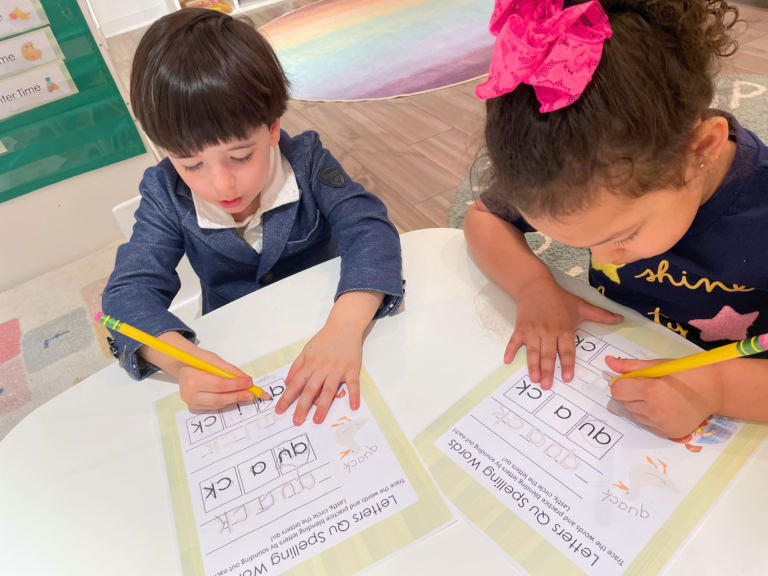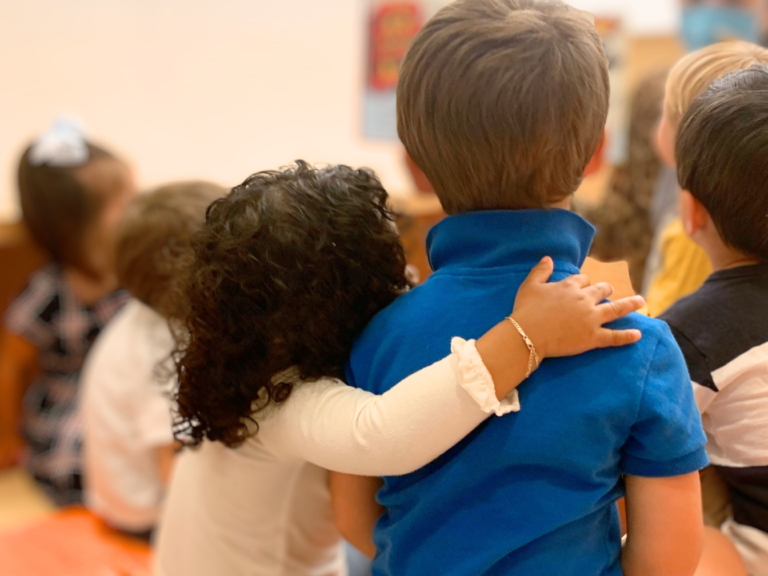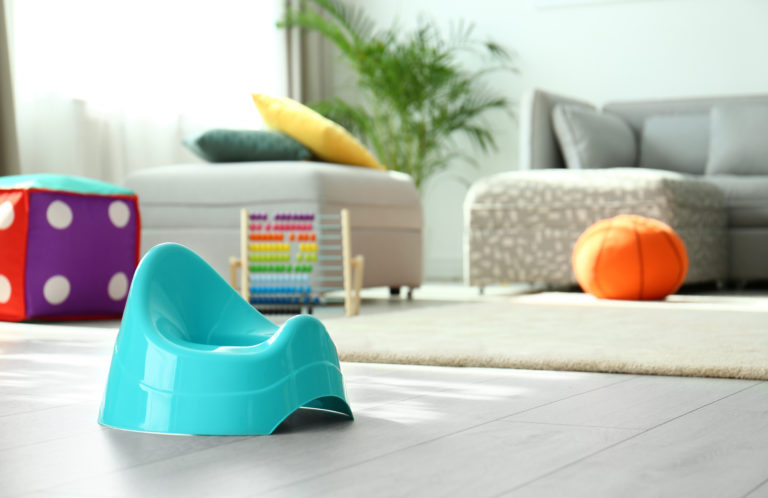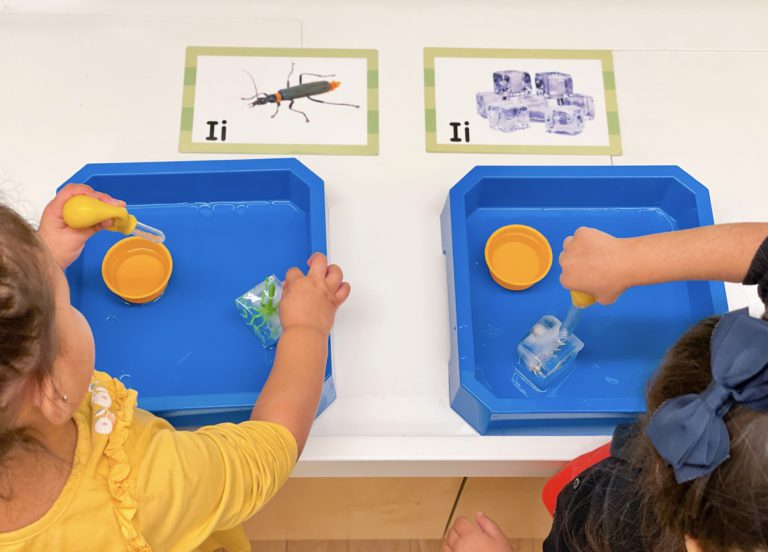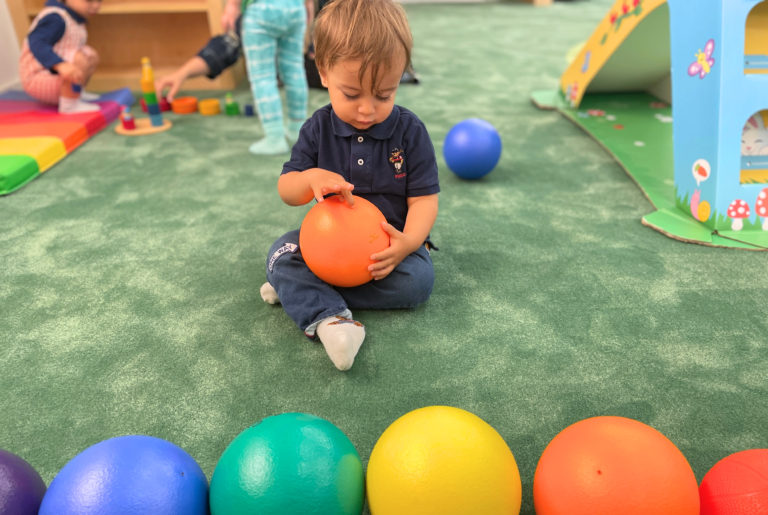Gentle Parenting Through Your Little One’s Big Emotions

There’s no doubt about it—the phrase “terrible twos” is a daunting one for anyone with a little one of their own! It’s true that dealing with emotions can be overwhelming, and tempers can run high as your little one navigates growing up and learning more about how the world works. That being said, if you go into that period of time with a lot of compassion and understanding, or by “gentle parenting,” the terrible twos can actually be terrific! Preschools (and online homeschool!) can provide lots of social emotional learning support, but you can start your little one’s social emotional education at home. Here are some great gentle parenting tips on mitigating your little one’s moments of feistiness.
Before we discuss how to mitigate those flaming tempers, it’s really important to understand where your little one is coming from when they begin to approach age 2. There are so many important changes and milestones your little one goes through as they get older; you might have noticed that they can walk with a bit more ease, grab onto toys or utensils with more skill, and jump, run and kick with the best of ‘em. These changes aren’t just physical, though—all those physical developments are accompanied by mental changes, too. Your little one is beginning to develop a greater understanding of language, and probably can understand certain words that you tell them! They are also able to understand what they like and do not like, and will begin to ask (or refuse) certain things from you. However, because they are still developing, they don’t have full language control, which can make understanding them difficult at times. While it can be frustrating for you to not completely understand your little one when they’re asking you for something, it’s important to think about how you would feel if you were trying to communicate to someone who could not understand you! This is usually a big cause for those monster meltdowns from your little one; they aren’t trying to upset you, they just want to feel seen and understood.
Some things you may notice as your little one approaches this period of time are:
- Increased Frustration: Your little one might be more easily discouraged; perhaps they were not able to button their shirt on their own, or maybe they wish their sandwich had come in triangles rather than halves.
- BIG Emotions: Your little one is feeling a lot as they enter this period of time! This may manifest in a more positive light, such as lots of giggling and laughing, but can also manifest itself in…
- Tantrums!: This one is pretty common amongst little ones during this age. When they can’t articulate those big emotions or needs properly, they get upset and react accordingly.
- Biting, Hitting, and Slapping: This goes along with your little one’s new physical developments. Their body is changing, and they can do more with it. When you combine these new abilities with a curiosity about how you will react to certain actions, the increase in frustration and those big feelings, biting, hitting and slapping may be your little one’s go-to for attention and the like.
- Increased Sense of Independence: Because their bodies and minds have grown so much, your little one is likely to be more eager to try to do things on their own, such as feed themselves and put on their own clothes.
- Grouchiness: Ah, yes—this comes out most when your little one is feeling fatigued or hungry, but can really encroach into your daily lives when not attended to properly!
Seems scary, right? Having to make sure your little one’s well-being is there as well as dealing with those emotions can make gentle parenting seem like the world’s biggest challenge. However, it will all be alright, so long as you are prepared, and know how to work through these choppy waters! Some gentle parenting help ideas are as follows:
- Keep Calm and Carry On: It seems easy enough—unless, of course, you have experienced how tough it can be to keep your cool when your little one has been hollering in the grocery line for a long time! It takes a lot of patience for sure, but if you can be patient, compassionate and, most important, communicative with your little one, they will feel supported. You will also help them see a wonderful example of how to be calm or how to better regulate their own emotions as they get older!
- Predict Tantrums and Stick to a Routine: We’ve discussed previewing a lot in past articles, and the same principle can be applied here! If there are things that you know will trigger a meltdown from your little one—say, putting away toys for nap-time—be sure to introduce them ahead of time to your little ones. This gets even easier if you are able to stick to a pretty consistent routine with your little one. Little ones love stability, and if you are constant in what you ask of your little one, they will be more constant in being able to do as you say.
- Be Mindful of Hunger and Fatigue: Even as adults, we find ourselves crankier when we are feeling exhausted or have not had a proper snack or meal. Your little one is the same. When setting a routine, it is a good idea to make sure you aren’t taking your little one on excursions of any kind too close to nap or bedtime. A great idea is also to carry around lots of healthy snacks for your little one to choose from (having options and a sense of autonomy in what snack they choose is also really beneficial to your little one) to keep those hunger pangs away!
- Pick Your Battles: When you have reached a point of frustration that seems unbearable, it may feel like the right thing to stand firm in your “no.” In some situations, such as during those really hard tantrums, it actually is! However, it isn’t going to totally derail your ability to discipline if you give in occasionally to your little one. Too many “no’s” can make your little one feel really unheard and unhappy, so within reason, saying “yes” isn’t inherently bad! Just be sure to stand firm on the really important things.
- Positive Reinforcement: It’s great to be recognized! When you see your little one being good, don’t hesitate to tell them how you noticed. It’s a great way to make sure your child feels they are supported, and will also encourage future good behavior! This is a great practice to encourage social emotional learning and development.
We know how overwhelming it can be to try and balance looking out for your little one’s well-being and dealing with emotions, both yours and your little one’s. However, if you can go into the period of the “terrible twos” with a positive and patient outlook, and apply some of the gentle parenting tips from above, this tough period will become much less daunting—for your little one AND you!
Try Our Online Preschool for FREE! Playgarden Prep offers educational videos from real teachers, and numerous DIY projects that support social emotional learning and development.
Popular


Hi, I'm Miss Charlotte!
Miss Charlotte is an Education Director by trade, and a mom by heart. All 200+ of our DIY projects were created by Miss Charlotte, with the help of her expert DIY assistant—Her 4 year old daughter! With a MST degree in Early Childhood Education and 15 years of teaching experience, her blogs and DIY projects have been an incredible resource for our Playgarden Prep schools. We hope that your family loves them as much as we do!

